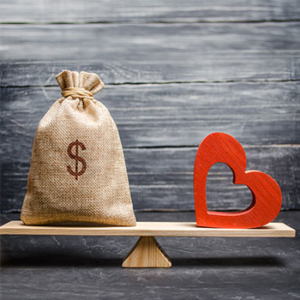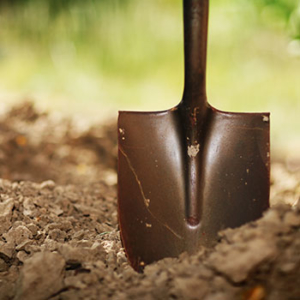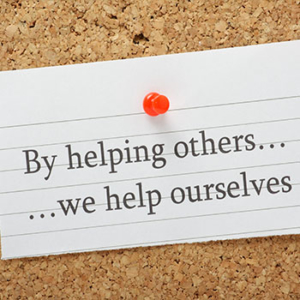 How much work is your money doing on your heart? Money is a tool, and tools can work two ways: the object and the subject. For example, if you were to dig a hole in your backyard and were using a shovel while not wearing gloves. How much work would that tool (the shovel) do on your hands?
How much work is your money doing on your heart? Money is a tool, and tools can work two ways: the object and the subject. For example, if you were to dig a hole in your backyard and were using a shovel while not wearing gloves. How much work would that tool (the shovel) do on your hands?
What if you were to continue to dig holes using that shovel? Wouldn’t your physiological state change over time?
 Your back, arms, shoulders, and legs would most likely increase in muscle mass, but also your hands would grow hard and calloused. Your money, as a tool, works the same way, inward and outward. We can become so defined in how we work with our money that we can go blind to how the tool is working on our hearts. Knowing my heart, I can work so hard on accumulation and preservation that it would be very easy for me to lose sight of the world around me.
Your back, arms, shoulders, and legs would most likely increase in muscle mass, but also your hands would grow hard and calloused. Your money, as a tool, works the same way, inward and outward. We can become so defined in how we work with our money that we can go blind to how the tool is working on our hearts. Knowing my heart, I can work so hard on accumulation and preservation that it would be very easy for me to lose sight of the world around me.
I spoke with my friend, a physical therapist who works with patients post-injury and surgery.
I was asking what the importance of continuous movement in joints even after the injury. Many people over the years have commented on how painful and difficult PT was following a major operation. He strained that there were degrees at which it was healthy, but ultimately movement was vital for continued muscle structure and to keep the joints moving in a fluid motion. Eventually, if you don’t use it, you lose it. I found this fascinating, and then I began to draw a line between my heart and the exercise of generosity.
I thoroughly enjoy my money, and the exercise of generosity treats my greed like an injury (which it is), and it’s the therapy. It literally pulls my hand open from its kung-fu grip and forces me to think of others. So when you practice a plan of generosity, you are going through the actions of giving something away without expecting a return. It puts people in the proper context that they are more significant than money.
The hearts, minds, and caretaking of others is a greater endeavor than just the accumulation of things for my selfish enjoyment. Generosity is an exercise, and no one is good at it on their first go. But if you continue to work on it, it will continue its work on you. The more you exercise generosity, the less foreign it feels.
 So, where do we begin?
So, where do we begin?
First, embrace the awkwardness of giving money away. Go talk to someone who is good with/at generosity. What values do they find in it, and how have they seen their lives benefited? But also ask what are the things they would’ve done differently? Then, I would create a plan of generosity. How much, when, and to whom? All of these are questions that you should feel excited to answer. Not under any compulsion or force. A plan should have some boundaries for you and the places that will be receiving your gift. Verifying their validity and your alignment with their goals and mission will only add necessary protections. The goal is to help in areas that move with your heart.
Lastly, pass this by your financial advisor and tax specialist to see if there are better ways to participate in generosity without exposing you to unnecessary tax implications. If you don’t have a financial advisor, we at Allen & Company are always available to help.
May 2022
